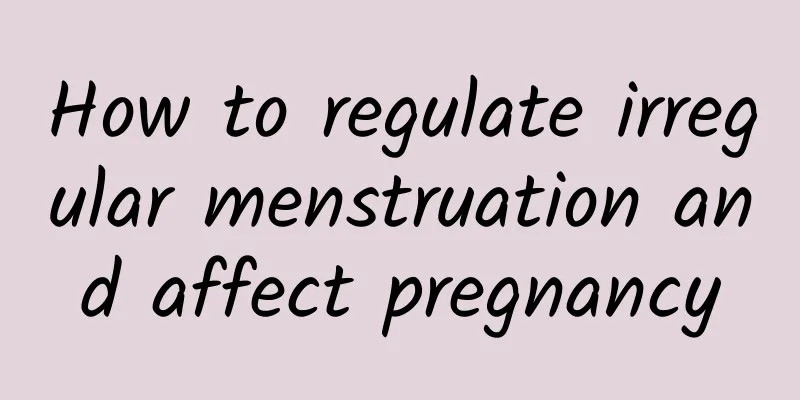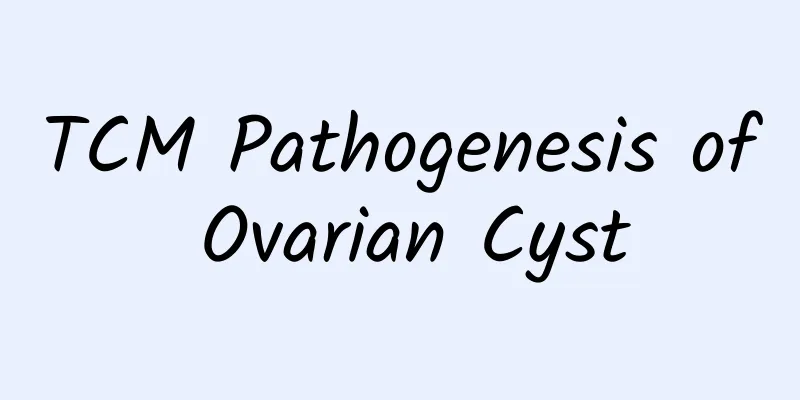What are the symptoms of uterine fibroids? Does it affect pregnancy?

|
Uterine fibroids are a serious uterine disease. They can damage the uterine function and affect the uterine function of pregnancy. Although uterine fibroids can be used for pregnancy, they will have a great impact on the health of the fetus. Therefore, uterine fibroids must be diagnosed and treated in time. So what are the symptoms of uterine fibroids? The manifestations of uterine fibroids are mainly abnormalities in female physiology. 1. What are the symptoms of uterine fibroids? 1. Uterine fibroids can cause unstable menstruation. They can prolong menstruation and cause heavy bleeding. The enlarged uterine cavity caused by uterine fibroids affects the contraction function of the uterus and squeezes the blood vessels in the uterus, causing congestion symptoms. This can increase menstrual bleeding and even discharge pus. If this continues for a long time, it will cause ischemic lesions in women's bodies. 2. Uterine fibroids are small in the early stage and cannot be felt from the outside. Once the fibroids grow and the uterus continues to swell, you can feel the lump with your hands. Some enlarged tumors may even prolapse from the vagina, so you can seek medical attention based on the prolapsed material. 3. Uterine tumors can increase endocrine secretion, and pelvic congestion can lead to an increase in leucorrhea. It can also cause various symptoms such as ulceration, which will have a foul smell when flowing out of the vagina. 4. Uterine fibroids can cause the uterus to swell and compress other organs, especially the bladder, leading to urinary tract diseases. In severe cases, it can also cause blockage of the urinary system and kidney diseases. 5. Uterine fibroids can also cause lower abdominal distension and pain, back pain, vomiting and fever. 2. The impact of uterine fibroids on pregnancy 1. Uterine fibroids can prevent the fertilized egg from implanting, making it impossible for women to conceive normally. Even if they do conceive, miscarriage may occur due to uterine lesions. 2. Uterine fibroids can squeeze the fetus and cause it to be in an abnormal position, affecting the development and birth of the fetus. 3. After the birth of the fetus, uterine fibroids may cause adhesion of the placenta, which may hinder uterine contraction and cause postpartum hemorrhage. In general, what are the symptoms of uterine fibroids? It is mainly an abnormality in the female menstrual cycle accompanied by various abdominal discomfort symptoms. If uterine fibroids are not treated in the early stage, it will affect women's fertility, especially the healthy development of the fetus. Severe cases may even endanger life. |
<<: How long does it take for ovulation to occur after abortion? It depends on the individual
>>: Is mild cervical erosion a serious problem? Don’t let it develop
Recommend
How to prevent pelvic effusion in daily life
Pelvic effusion is a manifestation rather than a ...
Do you know any methods to prevent vaginitis?
What are the methods to prevent vaginitis? What m...
What are the clinical symptoms of abdominal wall endometriosis?
Are there many clinical symptoms of abdominal wal...
Can I get pregnant if I have cervical erosion of degree 2?
Among gynecological diseases, there are many very...
Cost of early treatment of pelvic peritonitis
The body is like a machine, and it is inevitable ...
The care methods for uterine fibroids must be understood in detail
Nowadays, more and more women suffer from uterine...
Expert answer: Will dysmenorrhea cause infertility?
"Will dysmenorrhea cause infertility?" ...
Which hospital is good for treating menopause?
The choice of hospital is the first choice for tr...
What harm does uterine fluid cause to women?
The uterus is a female reproductive organ. If it ...
What should you avoid eating when you have dysmenorrhea? Cold foods
Many women experience pain during menstruation. I...
How to treat endometritis effectively and cause irregular menstruation
Irregular menstruation caused by endometritis can...
Healthy Weight Consultation now offers Internet and telephone services
Many computer users have become obese due to long...
What are the symptoms of female cervical erosion? Three symptoms of female cervical erosion
The female cervix is more susceptible to infect...
Why does bacterial vaginosis occur?
Bacterial vaginosis may be caused by poor hygiene...
What are the effects of uterine fibroids on the body? What are the harms of uterine fibroids on the body?
Uterine fibroids are a common benign reproductive...









